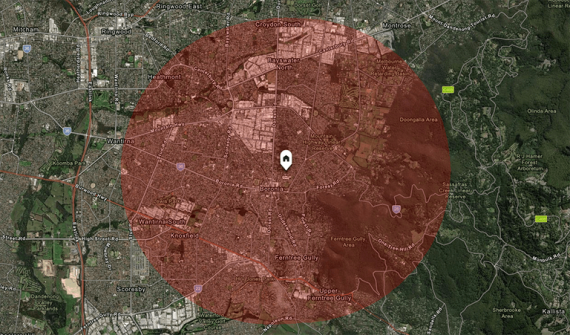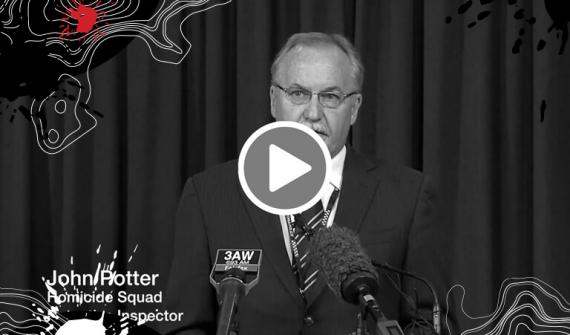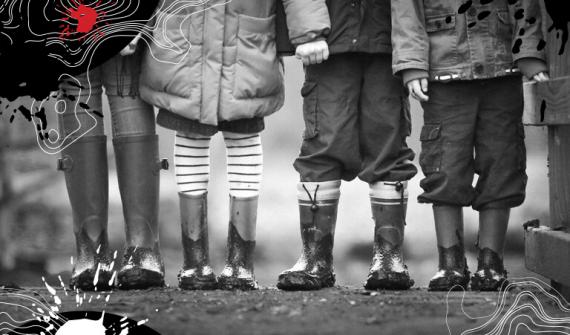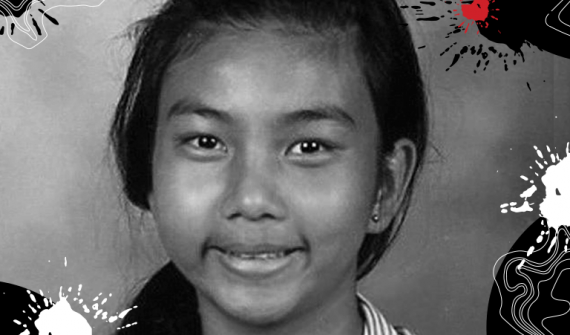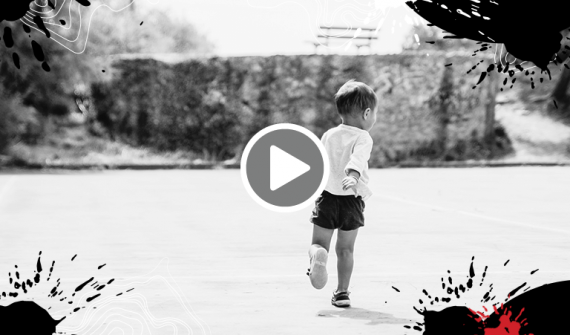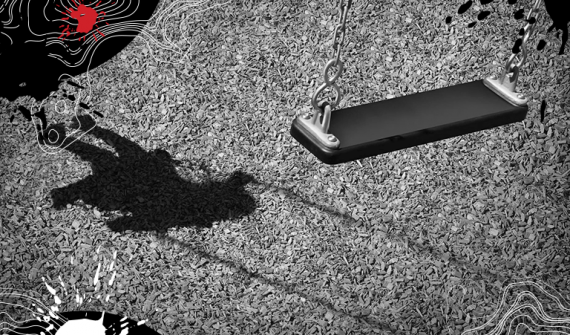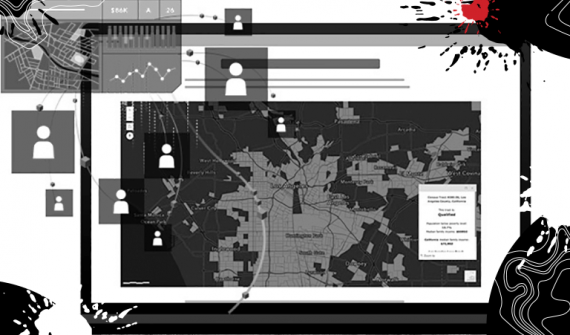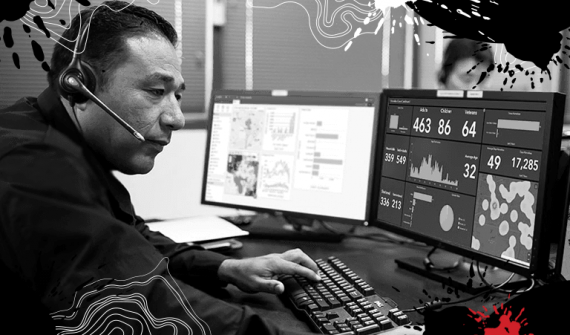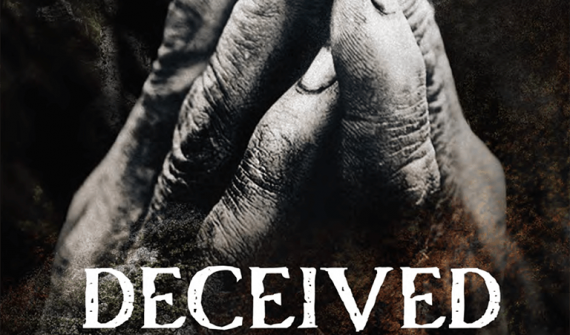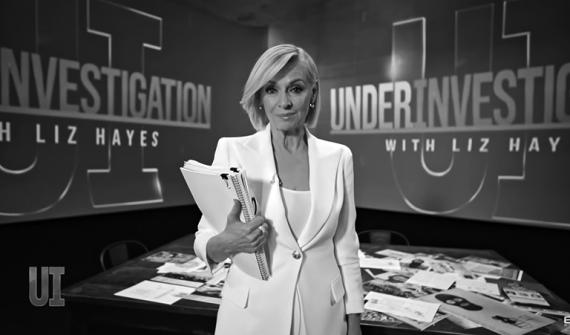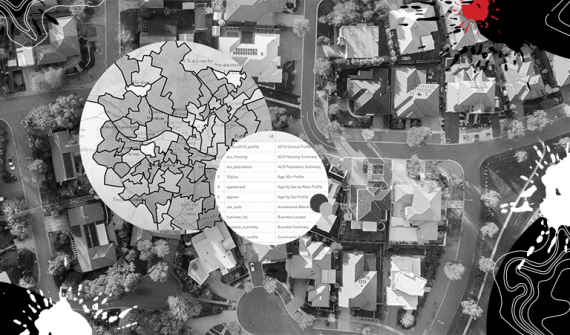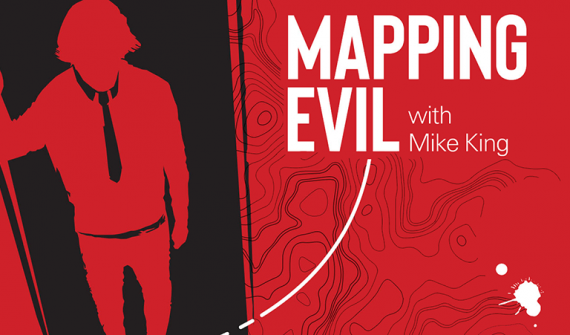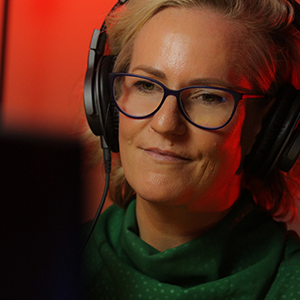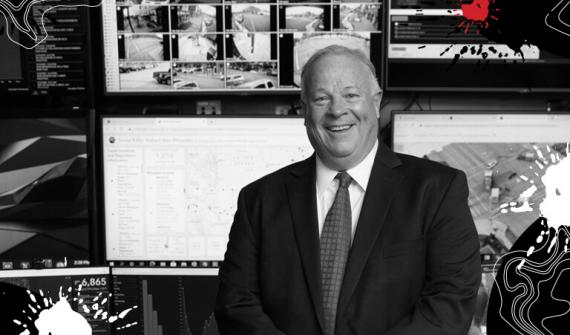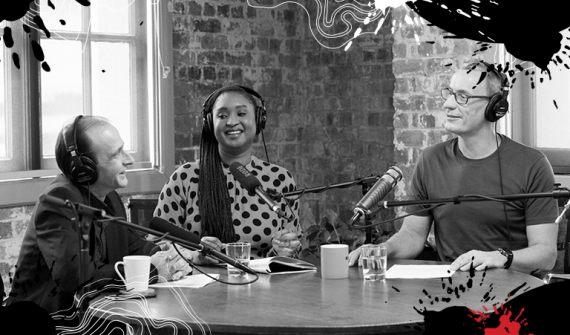Mapping precious last steps
Oliver Ben Gerrish is every parent’s worst nightmare – charismatic and cunning, he represents the most dangerous of serial predators. By the end of his reign of terror, ‘Big Ben’ as he came to be known, had irreparably damaged the lives of more than 550 children and their families.
In this episode, Mike and Tory discuss the key learnings from studying Gerrish’s modus operandi. Mike walks through the boldest of Gerrish’s crimes, painting a terrifying picture of how easily a skilled predator can gain the trust of otherwise protective parents. Tory and Mike then explore the cold case disappearance of 13-year-old Melbourne schoolgirl Bung Siriboon – who simply vanished on the short ten-minute walk from her house to her school.
Mike challenges the rumour suggesting contacts close to home were responsible for Bung’s disappearance, instead exploring the theory that at some point between 8.00am and 8.30am on 2 June, 2011 – along Harcourt Road, Boronia – Bung came face-to-face with a monster like Gerrish.
“He was really a… patient predatory paedophile. Once he selected his preferred targets, he would spend weeks, literally weeks grooming not only the child, but the child's parents.”
Discover more about crime mapping
Never miss an episode of Mapping Evil – subscribe now.
About the hosts
Get started with a free trial of Esri's mapping software.

If you have information about any unsolved crime or suspicious activity, then you can share what you know with Crime Stoppers, without saying who you are or getting involved. Call 1800 333 000 – or go to crimestoppers.com.au.
- Click to view the Navigating to safety transcript
Tory: The following podcast contains content of a highly graphic nature. Listener discretion is advised. The material covered is based on firsthand accounts and publicly available information. In producing this podcast, every effort has been made to show respect to the victims and their families.
Support for this episode comes from the country's leading mapping technology and services provider, Esri Australia. To learn more about how Esri tech is making a difference in crime analysis and public safety, head to Esri Australia, that's E S R I australia.com.au/crime.
Victoria Police: Bung went missing whilst walking to school on the 2nd of June 2011. She has not been seen since.
Tory: I'm Tory Shepherd. And this is Mapping Evil with Mike King.
Mike: Like many predators he was charismatic and I think that's one of the key things that we see in this kind of personality type. In some cases he would simply offer to babysit or take the child to a movie.
Tory: The podcast that puts true crimes on the map, literally.
Mike: Unless it happened to be a predator who's living in one of those homes that are passed along the way. And I think it's more likely that this was a stranger abduction that was an opportunistic kind of event. I'd look at every intersection. I'd wonder about whether vehicles are crossing and which side of the street she was walking on.
All of that becomes so critical in an investigation like this.
Tory: Episode Seven: Navigating to Safety.
Mike: It is true that a child in most situations would be considered a low-risk victim. But the moment Bung left her home alone, things start to change.
Tory: I'm here with Mike King, one of the world's top experts in criminal profiling, violent crime investigation, and solving cold cases with geographic thinking. And during that time he’s been confronted with some truly horrific predators, but perhaps none so frightening is the one we're going to discuss today.
Oliver Ben Gerrish. Every parent's worst nightmare. A sexual predator who prayed on hundreds of children, as many as 550. Aged between three and 13 years.
Mike, tell us about Gerrish.
Mike: Well, you know, like many predators, he was charismatic, and I think that's one of the key things that we see in this kind of personality type.
He was a loner of sorts Tory. He kind of moved from place to place fairly regularly. And I think that usually happened when he was sensing that his personal risk of being exposed as a predator, was increasing. When I first heard of him, I only heard of him by his nickname in the community, which was big Ben.
He was about six foot, five inches tall, but he wasn't really an athletic guy by any means.
Tory: I also read that he was pretty well presented you know, he didn't look like somebody that might raise suspicions when I guess he was meeting some of these families. So, let's start to have a little think about his modus operandi.
Mike: Well, you know, he was really a, what I consider to be a patient predatory pedophile. Once he selected his preferred targets, he would spend weeks, literally weeks grooming, not only the child, but the child's parents. Slowly as he would ingratiate himself into the family where he could eventually exercise some kind of special privileges.
He always made himself out to be a guy that was really there to help. In some cases he would simply offer to babysit or take the child to a movie. Busy parents, you think about this, they were so grateful for some kind of help. And it even went beyond that though, at other times, this is the guy who was volunteering to help with youth outings and scout camps at the local church congregation.
And he would do things like tout his experience working on an ambulance and his first aid training as some kind of benefit that they just couldn't pass up. Again, it was just one of those things where he was offering something too good to be true.
Tory: Mike, can you tell us a bit about the ice-skating rink incident?
I think that's kind of a, you know, a good example where he made himself useful to a parent in order to get to the child.
Mike: You know that was a really interesting case that he was involved in and what he actually did is he started going to ice-skating rinks, because he liked to ice skate. And he would get in the ice-skating arena, the rink, and he would look for children that had fallen down, children that were having a hard time standing up on skates, and he would go over and offer them help.
And everybody thought he was such a great guy because he was helping out. And yet what he was doing is he was taking little, chances to touch the children and, and assault them without them even knowing what was going on. But then as the ingratiated himself with the parents, he actually reached out on one occasion, wrote a note to somehow legitimise his position and said, listen I volunteer here at the ice rink and I work with handicapped children and he had selected a handicapped young girl.
And said, I'll, I'll be happy to help teach your daughter how to ice skate because that's my specialty. And just what I do as a good guy. Well, the parent bought off on this baloney and actually said, I've got to run to the store I'll leave her with you for her lesson. And he took advantage of that, slipped her out the back of the rink, where he then assaulted her in a nearby park.
The child was just devastated as, as anyone might guess, but having a mental disability, she really didn't know how to express what had happened. The only thing the parents could understand is that she immediately quit wanting to go to the ice rink on Saturdays and literally fought them when they would suggest let's go to the ice rink.
It wasn't until months later, Tory, that the child actually listening in school, heard about stranger danger and inappropriate touching and spoke up to a schoolteacher who then got her into the counsellor, to the police and then led to Gerrish's arrest.
Tory: Is that common for a predator to like groom the parents first?
Because I'm wondering whether there are a lot of people still have this stereotype in their head of like the, you know, the dodgy guy hanging around the kids park, raincoat in the shadows sort of thing. Is it common for somebody to, I guess, strategize that much?
Mike: I think that's part of the grooming process and they have learned through experience what is going to get them the most quickly from point A to point Z. In his particular case, that was one of those techniques he used in what he called his grooming processes, he used a different set of tactics at the movie theater and a different set at the local swimming pool, the public swimming pools. These guys are so predatory in nature and they have attempted, failed and they have attempted and been successful so many times that they really figure out what works best.
Tory: You're doing this work are you actually get these guys, criminals of various stripes, to talk to police so that police can more easily, I guess, get inside their minds.
Mike: We thought what better way than to go right to the expert to learn what the expert does. And so we went to the prisons and got predatory offenders who never had a chance of getting out of prison. They had nothing to gain by talking. And we brought them in front of these large groups of law enforcement.
Now, we always had to be concerned that they were going to somehow either minimise their crimes and not really give up all the information or they were going to, on the other hand, try to make them so grandiose that, you know, I'm the best at this particular kind of crime that there ever was.
But what we found was that by putting them in front of the officers and giving the officers an opportunity to ask them questions, not in a threatening way like in an interview, but ask them questions about how did you select the victim? How did you avoid detection? How did you respond when law enforcement spoke to you?
All these things that really, we never get a chance to talk about or train, except for in the field. We were putting them, the practitioners right with the predators and the learning was just incredible.
Tory: Is there stuff they should take away in terms of the locations he chose?
Mike: Oh, absolutely Tory, in fact I always go back to something my grandfather taught me when I was a boy. He said, when you go fishing, you got to fish where the fish are. It's a really simple process. Offenders are going to go where they have a better choice of victims. Gerrish would often talk about even doing things like that going to the movie theater on Saturdays and he'd sit in the back of the movie theater and there he would watch the children that came in for the matinee.
Maybe their parents dropped them off while they were shopping in the mall or something. And he would fantasise about them. And of course, you know, do all kinds of disgusting things in the back in the darkness. Well, I've never walked into a movie theater since without thinking of that and without looking around and trying to see you know, if there are individuals that kind of fit that profile.
Tory: And then talking about how they're choosing places, I mean, I was thinking about Gerrish and that huge number of offences, like 500 to 550. And just thinking he's not going to go back to the same place every time is he? So is he, he must be looking at maps for where, you know, where the next swimming pool or the next movie theater is.
But look, we really don't want to turn everyone into paranoid helicopter parents, but there is some sound advice out there. Starts with the conversations you should have with children before they even step outside. And look, if you go to mappingevil.com.au we are going to put some links on there about how to keep children safe in the real world and of course, online, which is a whole other, whole other story.
But Mike, what are the top tips for parents who hear about a guy like Gerrish, hear about how he plots places to go, I guess, and how to stay safe.
Mike: Yeah. Well, I think the first thing is again, go right where you pointed to the links that are available in Australian resources.
I hope people will go and check those out. I would add that we need to be ever vigilant and wise, not paranoid, but prepared. No one will care about and watch over our most prized possessions, our children, like we will. And so we need to really think carefully about who we're going to entrust our children with.
I think as adults, we need to consider volunteering more with youth outings. Demand, at least at least that there's two deep leadership on activities where children are participating together, and consider volunteering again your own time. Vet people who are volunteering, whether they be daycare providers or babysitters.
And again, Tory I guess don't be paranoid, but do be risk adverse. Preparation versus paranoia.
Tory: Let's put that on a t-shirt. And I just want to check so two deep adult leadership, obviously, because then you've got some adults keeping an eye on each other. Right.
Mike: Exactly.
Tory: Okay. So now we're going to talk about Siriyakorn Siriboon, whom everybody called Bung. This is a really different case, but again, geography is something that they have in common and something that can help us, I guess, walk through what happened and try to work out if there's anywhere we can find out a little bit more.
Bung was, she was a good kid by all accounts. She moved here with her mother Vanidda and big sister Siriporn after her mother fell in love with an Australian, Fred Patterson. So let's listen to Victoria police talking about this case. And then we'll also hear a few words from Bung's stepfather.
Victoria Police: Victoria Police is today launching a $1 million reward for information concerning the disappearance of Siriyakorn Siriboon. Bung went missing whilst walking to school on the 2nd of June 2011. She left home at about 8.30 in the morning, was walking in Elsie Street her normal route to school, when she was sighted by a neighbour.
She has not been seen since. In June, the last two and a half years, Victoria Police has conducted an extensive investigation as to what happened.
Today we're appealing for information concerning Bung's disappearance. The $1 million reward is a life-changing amount of money and were appealing specifically to whoever knows exactly what happened to Bung, to contact us. If anyone has any information, if anyone knows what happened to Bung, if anyone's been told anything and they haven't already contacted Crime Stoppers, then they should contact them.
Bung's Stepfather: It's a very big secret to keep to yourself. It's, to take someone and take them away, and it's not, I know people do it, but I'm sure there's somebody else or at least one, or maybe even more that know what's going on. People are waiting everywhere. Please come home. And if you can't come home well we're here, we're waiting for, we love you.
We, we need you here. We'll always be here waiting for you. Always. And, as I say, if anyone knows it's time to let her go or come forward or tell, tell somebody about what, you know, what you've seen, and you know, it's two and a half years now.
Mike: You know, Tory, there were a couple of things that really stood out to me in this media clip. And I hope people will not only listen to it again, but maybe go and watch the video clip. First, the large reward. I mean, I'm coming to understand that this is almost standard in Australia. It's so high in comparison to what we offer in the States.
And it makes me wonder if we could do better by offering more money, and yet I think the motivation for people to report generally isn't money. It is either they're not reporting out of fear or concern of losing something that they have, or that they are reporting because they know something, but clearly the police are out of leads in this case and they need help from the public.
Money may be that motivation. I don't know. But did you catch Tory on the video some of the body language between Bung's mother and stepfather? It was really interesting to me.
Tory: So the police are stuck and I'm sitting here just thinking about what they're saying and, you know, does this mean that she's lost forever, but you're looking at the couple and how they're interacting with each other.
Mike: Yeah I was really intrigued by this because in profiling, we spend a great deal of time looking at behaviour and analysing the behaviour and seeing if it's consistent with the physical evidence or the eyewitness accounts and other things. This is three years after the event that this press conference happens.
And I thought it was really interesting as the mother and stepfather sat down, a couple of things happen. One, the mother grabbed her husband's hand and she pulled it over onto her lap. Their fingers intertwined as she clasped her right hand over the two joint hands. Now, this was significant to me.
Later, we see the stepfather also lean over and whisper into her ear. It looks like he's, you know, offering her some words of comfort during a rather difficult time in the press conference. But she leans into him getting even closer, almost as if she's being comforted and accepting that comfort. I thought that was very intimate and touching. I was a little bit troubled, frankly, by his statements and the amount of effort he put into trying not to smile.
It looked like me, he was trying not to smile, but in no way, do I want this to sound like something incriminating. I don't know this fellow at all. I don't know how he responds under pressure. Some people respond differently than others. This is why it's so important for law enforcement to be measuring how people react and what's normal behaviour and not, not normal.
But all of that said, I then found it really interesting that after a short time, the mother moves back to Thailand. And I wondered why is that? Why did she have to go back and leave her husband? Was she getting more support in Thailand than in Australia? Were there deeper things going on that she had come to learn and just couldn't stand being here any longer?
Those are the kinds of things that start to haunt me as an investigator.
Tory: And for now I think they're mostly unanswered questions, but we'll certainly come back to Fred Patterson because he is interesting. And I think our listeners will be interested to talk about him a bit more, but for now, Mike, can you take us for a walk?
What did Bung do on that day, on June 2nd, 2011?
Mike: Yeah. This was an interesting thing because it was a little bit out of the norm. Usually Bung when she left for school somewhere between 8.00 and 8.30 in the morning to take her 10-minute walk to school, she would be accompanied by friends in the neighbourhood. On this particular occasion, for whatever reason, she is going to be walking alone.
And she walks out of her house and she makes this little left-hand jaunt to go down toward Albert Avenue, where she crosses the road to the South. Now you know, you Aussies kind of drive on the wrong side of the road in my thinking, but the way she crossed the road made me immediately think that she had been taught maybe to walk facing traffic like we were when we were young, so that she saw everything that was coming up on her.
As I looked at some of the aerial imagery, and this is where GIS becomes so important, is also I could see that in that neighbourhood, there was only a sidewalk on one particular side of the street that I could tell from the aerial imagery.
So it may have been very functional that she crosses over to the side where the sidewalk is. Not that it was anything else. And that's something else that we have to continue to do as investigators is look at what's possible and then figure out what's most probable. But somewhere along that walkway, where she then turns and starts going South on Albert Avenue, she takes a left onto Harcourt Road.
And, and from there a little jog that's supposed to take her a back way into the school. Now a neighbour reports seeing her at 8.30 and there is a report of another neighbour seeing her at about nine o'clock. I really question whether those neighbours saw her. This child is wearing the same school uniform that every other child is wearing.
How attentive people are to someone walking is interesting to me. And again, this is a 10-minute walk and we now have as much as 30 to 60 minutes that are used in this pathway according to witnesses. It just doesn't seem probable to me that it took her an hour to make that trip. If in fact she was abducted, it probably happened in that first 10 minutes that she would normally walk and then she was taken from the area.
Tory: It's tricky isn't it? Because you start to sort of visualise her walking that route and thinking about where people said they saw her and it doesn't work out. Unless she was dawdling it can't have taken her half an hour or more to get that far. And that's not the only thing that makes it hard to map this out. There was also a hoax story about an attempted abduction that was very similar that turned out to be made up.
Then there was maybe another real attempted abduction, not too far away, but it was actually really different characteristics so may not have been connected. There was also a really strange story about a man who said that he'd hit Bung with his car and dumped her body. And so then of course, investigators going, well, if you hit her here and then, you know how far we have gone to dump her body, but they think he just made that up as well.
I don't know what's going on with people who are just making some of this stuff up, whether they're deliberately trying to obfuscate the investigation or just insert themselves in it.
Mike: That's an interesting point though Tory, because there are people who confess to crimes that have nothing to do with it. And the question becomes, are they living such a mundane life that, that somehow is giving them some recognition because even bad recognition to some people is better than no recognition at all.
But I'm a little troubled I'd like to know more about this fellow who on several occasions, said I hit that child with a car and then I took her because I was afraid and dumped her in a park area, a natural preserve area, a distance away. If he were intoxicated on that morning or just the mere stress of having hit and killed a child and his idea of the way to solve that is to dump a body. I think it's a very easy way to explain why they couldn't find that body.
We have this thing that we do when we get into trouble, we want to have just kind of a, this response we had when we were children, we called it when I was a boy 'do overs'. When we didn't like the way the game was going, we just yelled out, 'do over'. And we see criminals go through a process of do over where they just try to get rid of something, cleanse their hands of it and then play like it never happened.
And I dunno, I keep going back thinking about that person and wondering if one day somebody's going to discover her little body and remains in the woods somewhere nearby.
Tory: In the end it should have just been a 10-minute walk and you've named the streets that she would normally have walked on. Let us put you there in our imagination.
Let's put you in Boronia in Melbourne. What do you do?
Mike: I'll tell you the first thing I would do is go for a walk. I'd walk the exact same course that child took every day. I'd look at every intersection. I'd wonder about whether vehicles are crossing and which side of the street she was walking on. I'd look at the houses along the way, and I've done this with maps and aerial imagery and tried to understand, and even going from the different levels of income in that neighbourhood, which you could cross several income levels as you move from there, as you get closer, it seemed like the homes became more expensive. But I would look for vacant lots. I would look for areas where there's shrubbery or places that the boogeyman could be hiding, if that was the intent.
But again, think about the risk of someone hiding in that area with the intent of stealing the child away. The risk they would take with all these kids, all these parents driving their kids to school, walking to school. I think it just becomes less probable that there was a boogeyman, unless it happened to be a predator who's living in one of those homes that are passed along the way.
And I think it's more likely that this was a stranger abduction that was an opportunistic kind of event.
Tory: Okay, look let's go back to the stepfather. I want to read you something that he said. He said, “the father's always the first suspect, they searched me, searched the house or the cupboards, the roof. They even searched under the house because somebody said I'd been digging. I was under investigation for a long time. And people were saying, it's got to be him. It didn't worry me. I've got nothing to hide”.
So Fred's name was cleared. We should, we should be clear about that, but it is true isn't it? That it's often the perpetrator is somebody known to the child. So how do you factor something like that in when everyone's assuming it's a total stranger who snatched her off the street?
Mike: Yeah, we go back and I’d encourage our listeners, go back to discussions that we've had on the crime scenes, the initial contact site, the place where a crime occurs, the place where a body is disposed of.
Think about those in three different areas. And think about the victim risk continuum that we talked early on about Tory. It is true that a child in most situations would be considered a low-risk victim. But the moment Bung left her home alone, things start to change.
The moment she's walking down a street alone. Things start to change.
The moment she's crossing busy intersections. Things start to change.
It really boils down to the influences that situations, circumstances, and environment play in this. And while we might want to say, oh, low-risk victim means stepfather or someone close to her, we have to be wise enough to recognise all of that changed the moment this child left the front door of her home.
Tory: And you can go to mappingevil.com.au for all of our other episodes, as well as all the bonus information that we're always putting on there, including maps.
So Mike, those parents at four o'clock, they suddenly realised that the child is missing, that the child never went to school in the first place.
And of course they're frantic. So they did a lot of searching themselves, you know they ran around, they made phone calls, they put up a lot of missing signs for Bung. What would you advise parents to do in that situation?
Mike: Well, one, I compliment her parents for doing that and getting out. The most important thing a family can do in those early hours and days is work closely with law enforcement. Share everything. There are no secrets, even if it's something that you just don't like to talk about, or the secrets in the family that you don't like to talk about. Everything has to be put on the table so investigators can make clear decisions based on the most reliable information possible.
They need to follow instructions that law enforcement gives regarding the media and community efforts, because law enforcement may have a strategy and something in play that necessarily going and talking to the media without some direction could be problematic. They need to start rallying as much support as possible.
Some parents get concerned about reporting a missing child too soon. Maybe there's an embarrassment or I don't want to put out the police. Please, make the report immediately and get the troops rallied. And again, I got to go back and say that mum and dad, if I understand things right, did a good job of getting going.
Tory: Well, let's talk about that a little bit, because nobody's made too big of a deal about this at the time, but the school didn't have any policy in place. Even when I was at school, Mike, we had a policy, whereas where if I didn't turn up, they would call my parents.
And I know that because I did several times think about not turning up but know that they were going to call my parents. So what if they did? And I mean, you know, this isn't that long ago, they would've been able to easily text a parent. And what if they had, and that means that at like 9:01 AM, they knew that Bung was missing.
How would that change what you would do in terms of your walk through?
Mike: Well, first and foremost you would reconcile that, make sure the child isn't home, make sure that parents assumed that she was in school. And as soon as that reconciliation happens and you realise that this child is missing in action between those two points, then I would get everything rolling immediately. I would alert the media. I would start canvassing the area. Now I'm talking as a police commander. I would pull the troops out. You know, people that are working in the office, I'd have them out and knocking on doors in that neighbourhood house by house clearing the route that she would have taken.
And I would be asking people if I voluntarily, or if they would permit me to come into their home and check quickly for this child, telling them what's going on. Few people would not allow law enforcement to do that. They immediately needed to start looking and I'm sure they did at the sex offender registries and checking locations that they thought might be suspicious. Looking in areas where there's concealment like parks and vacant lots and other kinds of places. This needs, and these kinds of cases need a full court press the moment we learn about it.
Tory: Well, let's talk more generally then about the area and whether some spaces are more safe than others. Cause people, whenever you hear about a crime like this, and we've talked about a bunch of them where people afterwards say, we always thought it was such a safe place. We never thought something like that would happen here, but then you get people like Gerrish and how he just plotted out where he was going to go to find his victims.
Wouldn't someone like Gerrish think, oh, maybe I'll go to a 'safe suburb' where people are going to be more complacent.
Mike: Yeah, absolutely. I mean, again, why not fish where there are fish. This is really Tory about simply reducing our risks. Now this was out of character for Bung to walk to school alone. There is no question on this old adage of being safer in numbers.
Children need to be taught about stranger danger and this child was apparently, while not streetwise, was very stranger wise. Now it's really okay as a child if you're uncomfortable to go up and knock on a door, if you've got somebody in a car following you, that's scaring you, go up and knock on a door and ask for help.
You know, this is where we might recommend to our children, don't go inside with the people, but ask them to call police or that you're concerned about this car out in the street and get another set of eyes from an adult out there. We as parents need to think carefully about how our children are getting to and from school, it might require that we walk to school or that we organise a way with other families in our neighbourhood to have them walk in packs.
Tory: So, Bung would be grown up by now, which is such a difficult thought because her parents have never given up hope of her coming home.
But her disappearance definitely changed life in Boronia. Parents are now afraid to let their kids walk to school or even sometimes out of their sight. But I just wanted to reemphasise that there are things you can do to stay safe as Mike says, it's about empowering yourself and understanding risk, and we will make sure that we link to all those resources on the mapping evil website.
Mike: Yeah, and I think it's also important that we help our children understand that this is not a process to scare them. It's a process to really empower them. That they can make decisions that you're going to support them if they feel a little bit hinky about something and go and knock on a door, or if they say I don't want to walk to school alone, dad, I know you just got home from working a graveyard shift, but I need you to walk to school with me today because my friends aren't available. We really need to step up our game as parents and do it in a way that we're empowering ourselves and our children not frightening them.
Tory: Yeah. Well put, and I guess I'm thinking about how a kid, a car pulls up alongside them they might freeze cause they've never been told what to do. Whereas if they had been told again and again, that ever happens, just run a knock on the door. They may take action instead of freezing in fright.
We want to give special thanks to Victoria Police who helped us tell Bung’s story... and of course we thank our sponsor Esri Australia whose mapping solutions help public safety agencies across the country predict and fight crime, track the crims and keep us safe.
And as I mentioned, there's all that bonus material, including tips for looking after kids in the real world and online on our website.
Also on the website is a fantastic story map that retraces Bung’s last movements, so head to
mapping evil.com.au and while you’re there you can also download a free trial of Esri software.Mike, we've discussed serial killers and frightening cults and child sex abusers. We should reunite one day and talk about whiskers on kittens and warm woolen mittens, but for now, listeners, this was Mapping Evil with Mike King. If you've only just tuned in, please go to the website mappingevil.com.au or your podcast app and listen to all the cases we've waded through. And then go back to the website for the bonus information.
Mike: Tory. Thank you.
Tory: It's been such a pleasure Mike.
If you found the content covered in this podcast distressing support is available from Lifeline on 13 11 14. And if you have information about any unsolved crime, please contact Crime Stoppers on 1800 333 000, or go to crimestoppers.com.au.
Don't forget you can access other resources, including interactive maps and a free trial of Esri's mapping software at mappingevil.com.au.
If you enjoyed Mapping Evil with Mike King, leave us a review and follow us on Apple podcasts.
This is a Boustead Geospatial Technologies production. This episode was narrated by me, Tory Shepherd and Mike King. Sound design by Fig Media with editing support from Kim Douglas, Gabi Paterson, Circa3 and Podbooth Studios. Artwork by Superscript, and our Executive Producers are Raquel Jackson and Alicia Kouparitsas.
And finally, this production would not be possible without the support of Esri Australia.





 VIEW TRANSCRIPT
VIEW TRANSCRIPT